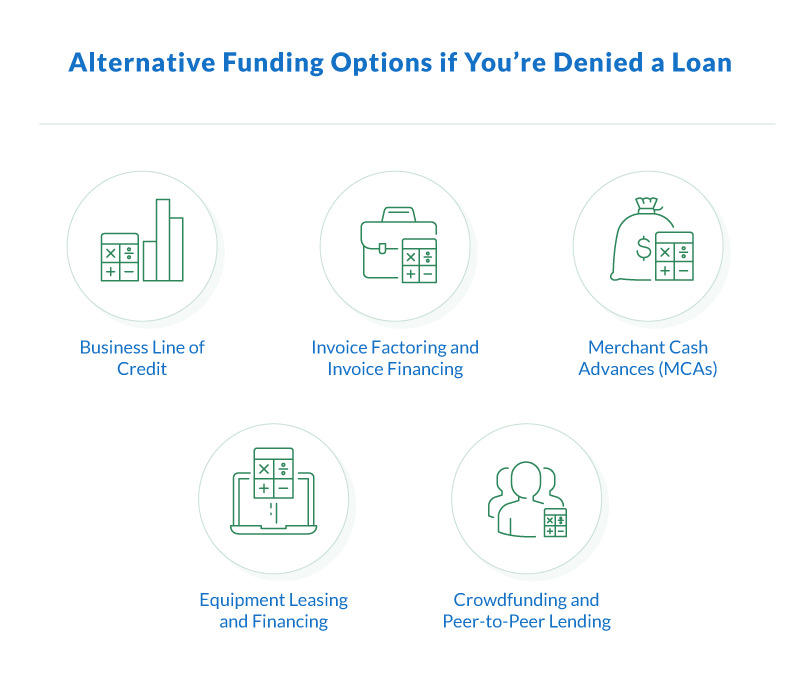Alternative financing provides businesses with vital access to capital when traditional bank loans aren't an immediate option. Whether you're managing a startup in its early stages or facing cash flow challenges, alternative funding methods like crowdfunding, factoring, or merchant cash advances can bridge the gap. In recent years, entrepreneurs have increasingly turned to fintech solutions, angel investors, and peer lending to secure working capital with more flexible repayment terms. This guide will explore various types of alternative financing, helping small business owners understand eligibility criteria, compare interest rates, and choose the best financial services to support their growth until they're ready for traditional financing.
What Is Alternative Financing?
Alternative financing refers to nontraditional funding methods that businesses use to secure working capital without relying on traditional bank loans or conventional financial institutions. Unlike standard business loans from banks, alternative financing is typically provided by fintech companies, private lenders, crowdfunding platforms, or specialized financial services firms. These options often leverage online platforms and innovative underwriting methods, which can offer borrowers quicker approvals, more flexible eligibility criteria, and a less stringent reliance on credit scores.
Key benefits of alternative financing include:
Flexible eligibility criteria. Unlike traditional bank loans, alternative financing providers typically have more accommodating eligibility requirements. This makes funding accessible to small businesses, startups, and entrepreneurs who might not qualify for conventional lending.
Faster access to funds. Alternative financing methods often feature streamlined application processes with rapid approvals, allowing business owners to receive the funds they need in days rather than weeks or months.
Reduced reliance on credit scores. Many alternative lenders consider other aspects, such as accounts receivable, revenue-based underwriting, or business cash flow, reducing the impact of a low credit score or limited credit history on loan approval.
Customized repayment terms. Alternative financing solutions can offer repayment terms tailored to your business's cash flow patterns, such as revenue-based financing or merchant cash advances, providing more manageable monthly payments.
When To Consider Alternative Financing
Alternative financing solutions can be especially beneficial in several common business scenarios. Consider exploring alternative funding if you find yourself in the following situations:
Startups lacking established credit history. Newly formed businesses typically have limited financial history, making traditional bank loans challenging to secure. Alternative financing options like crowdfunding, angel investors, or peer lending can offer startups early-stage capital without needing extensive credit histories.
Companies experiencing temporary cash flow issues. Seasonal fluctuations, late client payments, or unexpected expenses can disrupt business cash flow. Short-term alternative financing strategies such as invoice factoring, merchant cash advances, or lines of credit provide immediate liquidity to stabilize operations.
Businesses in need of quick access to working capital. Traditional bank loans can involve lengthy underwriting and processing periods. Alternative financing methods like fintech platforms, online lenders, or crowdfunding platforms can deliver working capital rapidly, enabling businesses to seize urgent opportunities or cover pressing financial obligations.
Owners with less-than-perfect credit scores. If a low personal or business credit score prevents approval from banks, alternative financing solutions like revenue-based loans, factoring, or community development funds offer accessible funding based on factors beyond credit scores, enabling growth despite past credit challenges.
Types of Alternative Financing Strategies

Alternative financing includes a variety of funding options tailored to businesses with diverse financial needs. When a business applies for funding and gets denied (maybe due to a lower credit score or needing higher monthly revenue, etc.), there are ways to bridge the gap until they're ready to apply for a loan again.
Here are several popular alternative financing methods, each with distinct advantages and ideal use cases.
Business Line of Credit
A business line of credit provides businesses with ongoing access to working capital up to a pre-approved limit. Similar to a credit card, businesses pay interest only on the funds they withdraw, offering flexibility in cash flow management.
Ideal use cases:
Inventory management. Covering inventory purchases or replenishment during peak seasons.
Payroll gaps. Ensuring employees are paid on time during temporary cash shortfalls.
Emergency expenses. Quickly addressing unexpected business costs, such as equipment repairs or sudden market shifts.
Invoice Factoring and Invoice Financing
Invoice factoring and invoice financing allow businesses to receive immediate cash by leveraging outstanding invoices. Invoice factoring involves selling accounts receivable to factoring companies at a discount, while invoice financing is a loan using unpaid invoices as collateral.
Ideal use cases:
B2B companies. Businesses that typically wait 30-90 days for client payments can immediately improve cash flow.
Long payment terms. Companies experiencing lengthy payment cycles or seasonal fluctuations that affect liquidity.
Merchant Cash Advances (MCAs)
Merchant cash advances provide businesses with upfront capital in exchange for a percentage of future sales, typically via daily or weekly credit card revenue deductions. MCAs offer rapid access to funds, often within a few business days.
Benefits and drawbacks:
Rapid funding. Ideal for urgent needs, MCAs can quickly cover immediate financial obligations.
Flexible repayments. Payments fluctuate with your revenue, helping manage cash flow during slower periods.
Cost implications. MCAs typically involve higher interest rates, making them more expensive than traditional loans, which may impact profitability.
Equipment Leasing and Financing
Equipment leasing and financing allow businesses to access essential equipment without significant upfront costs. Leasing involves renting equipment for a set period, while financing enables the purchase of equipment through structured payments.
Best use cases and industries:
Preserve working capital. Companies can maintain liquidity and invest capital elsewhere while obtaining new equipment.
Industries. Especially beneficial for equipment-intensive industries like construction, trucking, manufacturing, healthcare, and technology.
Crowdfunding and Peer-to-Peer Lending
Crowdfunding leverages online platforms to raise funds from a large number of individuals, either through donations, rewards-based campaigns, or equity-based investments. Peer-to-peer (P2P) lending connects borrowers directly with individual investors or groups through fintech platforms.
Both methods have grown in popularity among entrepreneurs in recent years due to their accessibility and reduced reliance on traditional credit evaluations.
Examples of common platforms:
Crowdfunding platforms. Kickstarter, Indiegogo (rewards-based), SeedInvest, and StartEngine (equity-based).
Peer-to-peer lending platforms. Funding Circle, LendingClub, and Prosper.
Comparing Alternative Financing to Traditional Loans
Alternative financing and traditional bank loans each offer distinct advantages and disadvantages for small businesses. Understanding key differences can help business owners determine the best financing method for their specific needs.
Approval Timelines
Alternative financing options typically have significantly faster approval timelines than traditional bank loans. While bank loans can take weeks or months due to rigorous underwriting processes, many alternative lenders or fintech providers approve funding within days—or even the same day—making them ideal for businesses facing urgent cash flow needs.
Credit Requirements
Traditional bank loans generally have strict credit requirements, often needing high credit scores, robust financial statements, and a lengthy credit history. Alternative financing, by contrast, relies less heavily on traditional credit evaluations, making it accessible to borrowers with less-than-perfect credit scores or startups lacking established credit histories.
Interest Rates and Fees
Alternative financing options, like merchant cash advances and invoice factoring, typically carry higher interest rates and fees compared to traditional bank loans due to the increased risk to lenders. However, these rates may vary widely based on the borrower's financial strength, the chosen lender, and the specific funding type. Bank loans, especially SBA-backed loans, usually provide lower interest rates, making them more cost-effective over longer terms.
Repayment Terms and Flexibility
Repayment flexibility is another critical difference. Traditional bank loans typically have fixed monthly payments and structured repayment schedules. Alternative financing options, such as revenue-based funding or merchant cash advances, offer flexible repayment terms, aligning repayments with the business's sales performance or cash flow, which can provide significant relief during slower periods or seasonal fluctuations.
How To Transition from Alternative Financing to Traditional Loans
Alternative financing often serves as an essential stepping stone for small businesses, providing immediate working capital until they become eligible for traditional bank loans. Transitioning to conventional financing typically offers lower interest rates and more favorable repayment terms, but it requires proactive preparation.
Here are practical steps your business can take to make this transition successful:
Building Business Credit
Establishing a solid business credit score is vital. Lenders rely on your credit history to assess risk and determine creditworthiness.
Open a business credit card. Regular, responsible use builds a positive credit history over time.
Maintain timely payments. Consistent on-time repayments for any form of credit—including lines of credit and vendor payments—will strengthen your credit profile.
Check credit reports regularly. Monitor your business credit through bureaus like Dun & Bradstreet, Experian, and Equifax, addressing any errors promptly.
Maintaining Accurate Financial Statements
Accurate and up-to-date financial documentation significantly influences traditional lenders' decisions. Organized records demonstrate your reliability as a borrower.
Regularly update financial records. Keep profit-and-loss statements, balance sheets, and cash flow statements accurate and current.
Hire a financial professional. Working with an accountant or bookkeeper ensures meticulous record-keeping, signaling to lenders your business's financial discipline.
Demonstrating Profitability and Revenue Growth
Traditional lenders prioritize businesses that demonstrate consistent profitability and revenue growth over time.
Monitor financial health. Track key financial indicators, such as profit margins and revenue trends, to proactively identify areas for improvement.
Optimize business operations. Enhancing operational efficiencies or diversifying revenue streams signals growth potential to lenders.
Document milestones clearly. Highlight financial achievements or significant growth periods when applying for traditional loans.
Reducing Existing Debt Levels and Liabilities
Lower debt-to-income ratios enhance your attractiveness to traditional financial institutions, as lower debt levels decrease lender risk.
Prioritize debt repayment. Strategically reduce or consolidate existing debts to lower overall liabilities.
Limit reliance on short-term funding. Gradually phase out high-interest alternative funding, such as merchant cash advances, in favor of less costly financing options.
Develop a clear debt reduction strategy. Presenting a debt management plan during loan applications can positively influence lenders, showing proactive financial stewardship.
By proactively following these steps, your business can position itself to successfully transition from alternative financing to traditional bank loans, unlocking opportunities for more affordable and stable financing solutions.
FAQs About Alternative Financing
Below, we answer some common questions:
What Are the Easiest Alternative Financing Options to Qualify For?
Alternative financing options like merchant cash advances, invoice factoring, and crowdfunding typically have easier eligibility criteria compared to traditional bank loans. Merchant cash advances and invoice factoring focus primarily on your business revenue or receivables rather than your credit score, making them accessible even to businesses with less-than-perfect credit histories. Additionally, crowdfunding platforms can support startups or early-stage businesses that may not yet meet traditional financing standards.
Can Alternative Financing Improve My Business Credit Score?
Yes, certain types of alternative financing, such as business lines of credit and timely repayments on short-term loans, can positively impact your business credit score. Consistent, on-time monthly payments demonstrate responsible credit management and build your business's credit history. However, not all alternative financing products report to credit bureaus, so it's crucial to verify reporting practices with your lender beforehand.
Are Interest Rates Higher for Alternative Financing?
In general, alternative financing options have higher interest rates compared to traditional bank loans. This is because alternative lenders take on greater risk by offering flexible eligibility criteria, quicker funding times, and less stringent credit requirements. However, competitive interest rates are available depending on the type of financing, your business creditworthiness, and the lender.
How Quickly Can I Receive Funds With Alternative Financing?
One of the significant advantages of alternative financing is rapid access to funds. Unlike traditional banks, which may take weeks to months for loan approvals, alternative funding solutions typically provide capital within days or even hours after approval. For example, merchant cash advances and invoice factoring often release funds within 24 to 48 hours, while online lenders offer short-term loans and lines of credit fund businesses in just a few business days.
Does Alternative Financing Require Collateral?
Not all alternative financing solutions require collateral. Unsecured options such as merchant cash advances, invoice factoring, and business lines of credit often don't require physical assets as collateral. However, certain products like equipment financing or secured lines of credit may require specific assets or equipment to secure funding. Always clarify collateral requirements with potential lenders before beginning the application process.
Position Your Business for Long-Term Success
Alternative financing can be an essential tool for businesses at any stage, providing entrepreneurs and small business owners with crucial access to capital when traditional bank loans aren't an option. Whether you're a startup without an established credit score, managing temporary cash flow issues, or simply in need of quick funding, alternative methods like invoice factoring, merchant cash advances, or lines of credit offer flexibility, speed, and easier qualification criteria.
Strategically utilizing alternative financing solutions can help you stabilize your finances, build a stronger business credit profile, and position your business for future growth and better financial opportunities. By establishing responsible repayment habits and improving financial metrics over time, your business can transition seamlessly to traditional financing options with more favorable terms.
Ready to unlock the financial potential of your business? Clarify Capital specializes in connecting you with tailored, competitive alternative financing options designed specifically to match your unique business needs. Take the first step toward long-term success — apply today and experience fast, reliable financing from trusted experts.

Bryan Gerson
Co-founder, Clarify
Bryan has personally arranged over $900 million in funding for businesses across trucking, restaurants, retail, construction, and healthcare. Since graduating from the University of Arizona in 2011, Bryan has spent his entire career in alternative finance, helping business owners secure capital when traditional banks turn them away. He specializes in bad credit funding, no doc lending, invoice factoring, and working capital solutions. More about the Clarify team →
Related Posts





